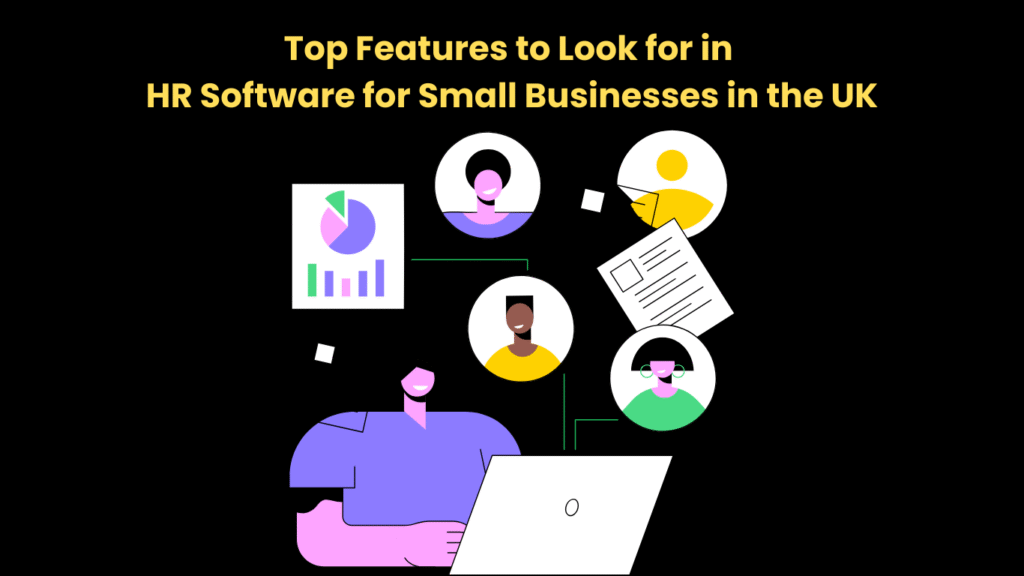Running a small business in the UK is exciting but also challenging. HR tasks like payroll, onboarding, leave requests, and performance reviews take time and effort. Without the right tools, these tasks can slow down growth and create stress. That is why many small companies now use an HR system for small businesses to manage people and processes in one place.
The right HR software can save time, cut costs, and keep your business compliant with UK laws. But with so many options available, it is important to know what features to look for. This guide explores the key features that matter most for small businesses in the UK.
-
Easy Employee Onboarding
When you hire a new worker, the first days are very important. Manual onboarding often means long forms, paper contracts, and delays. HR software makes this much easier. For companies hiring internationally, partnering with an EOR India can further simplify compliance and documentation steps. Look for a system that allows:
- Digital right-to-work checks
- Online contract signing
- Secure storage of personal details
- Automatic task reminders for managers
This ensures compliance with UK employment laws and provides new hires with a smooth start. For foreign companies, using EOR services in UK can allow them to legally hire workers from the country without worrying about setting up a legal entity or other compliance issues.
-
Payroll Integration
Payroll is one of the hardest HR jobs for small firms. Paying people late or making mistakes can cause legal trouble. A good HR system should connect directly to payroll, with solutions supporting iCIMS Integrations allowing employee data to flow smoothly between systems. Look for features like:
- Automatic salary calculations
- HMRC reporting and Real Time Information (RTI) submissions
- Payslip generation for employees
- Simple handling of bonuses and deductions
This saves time and ensures accurate payments every month.
-
Leave and Absence Management
Keeping track of holidays and sick leave with spreadsheets is messy. An HR system should have a built-in leave management tool. Employees can request time off online, and managers can approve in a click. The system should also show:
- Holiday balances in real time
- Absence history for compliance checks
- Alerts for overlapping leave requests
This makes planning smoother and avoids staffing problems.
-
Performance Reviews
Employee growth matters, even in small teams. A strong HR system will include employee record management software for performance reviews. This helps managers give feedback, set goals, and track progress. Features to look for include:
- Custom review templates
- Goal setting and tracking
- 360-degree feedback options
- Review reminders and scheduling
With structured reviews, employees feel valued, and managers get better insights into performance.
-
Time and Attendance Tracking
Small businesses often need flexible working hours. Tracking attendance on paper or spreadsheets can lead to errors. HR software should offer digital time tracking. Look for:
- Clock-in and clock-out options
- Overtime calculations
- Integration with payroll
- Reports for working hours and schedules
This ensures accurate pay and clear records.
-
Benefits and Perks Management
Flexible benefits are becoming common in the UK. Even small businesses want to offer perks to attract talent. HR software should let you manage:
- Pension contributions
- Health insurance
- Cycle-to-work schemes
- Employee allowances
A clear benefits system helps improve employee satisfaction.
-
Self-Service Portals
A good HR system should let employees handle simple tasks themselves. This saves HR staff time and improves efficiency. Features include:
- Updating personal details
- Downloading payslips
- Requesting holidays
- Viewing company policies
Self-service portals give employees control while reducing admin work.
-
Data Security and Compliance
Data protection is very serious in the UK. HR systems must follow GDPR rules. This means secure storage of sensitive employee information. Look for systems with:
- Encrypted databases
- Role-based access
- Audit trails
- Regular backups
This keeps your company safe from legal risks.
-
Reporting and Analytics
Small businesses need insights to grow. HR software should provide easy-to-read reports. Examples include:
- Headcount and turnover
- Absence trends
- Payroll costs
- Performance review outcomes
These insights help managers make better decisions and plan for the future.
-
Scalability
Your small business will grow. Choose HR software that can grow with you, such as Leapsome. It should handle more employees, more features, and new needs without slowing down. Scalability ensures you do not need to switch systems as you expand.
The Benefits for Small Businesses
By choosing the right HR system, small businesses can:
- Save time on admin
- Stay compliant with UK laws
- Improve employee experience
- Boost productivity
- Support long-term growth
A Practical Solution
If you are looking for a modern tool, Zelt offers many of the features listed above. It includes onboarding, payroll, leave tracking, performance reviews, benefits, time tracking, and self-service portals. For small businesses in the UK, it provides an all-in-one system that simplifies HR tasks while keeping compliance in check.
Read More: Secure Your Small Business: Best EDR Solutions for 2025 (No Cyber Expertise Required)
Final Thoughts
An HR system for small businesses should make life easier, not harder. Look for software that combines onboarding, payroll, reviews, attendance, and benefits in one place. The right choice will save time, reduce errors, and help your team focus on growth. With smart HR software, even the smallest company can run like a big one.




